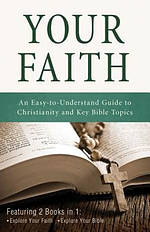In support of his argument that the Church has changed its view of war over the centuries, Alan Billings divides Church history into three major periods and discusses the differences between them, as regards the Church’s broad moral stance on war.
For its first 300 years or so, “the Church was without question a dove and its members practised the way of non-violence,” though without being ‘pacifist’, in an absolute sense.
Billings does recognise a “more extensive repertoire”. Over the following centuries, the doctrine of a just war emerged, enabling the Church to move reluctantly from pacifism to a “qualified acceptance of coercion”. Augustine, Ambrose and Thomas Aquinas feature at some length in this section.
Crusades, holy wars and persecution of Jews and ‘heretics’ were exempted from classification as ‘just wars’. Some Christians are quoted as opponents of Just War, among them Erasmus and Machiavelli. Those who view pacifism as the only legitimate Christian attitude will see the Just War as simply a “fig leaf disguising Christianity’s abject capitulation to power”.
In the third period, that between the Reformation and the World Wars of the 20th century, the sword comes to represent the Church’s attitude to war. Violence would be embraced if the cause were righteous. “The traditions of both pacifism and just war were eclipsed in Christian thinking.”
Billings’ eighth chapter—“Christian Responses to the First World War”—makes very interesting reading when so many events have been held to mark the centenary of 1914. Billings comments, “On both sides we find an almost unqualified identification of God’s interest with the national interest."
But now since 1945 something remarkable has happened “A dove-ish spirit descended on the modern Church!” Alan Billings devotes the last chapter of this most stimulating book—and a brief ‘Afterword’—to the Church’s recovery of just war principles, expanded by measures to ensure security after war.
Such jus post bellum—Latin for "Justice after war"—measures include ensuring a swift return to normal life, and the deterring of acts of retaliation and revenge.
This book covers a vast amount of ground, delving into the distant past, but also focusing on matters that are right up to date. If you have any interest in the ethics and conduct of war, whether it’s just in the realm of theory or has practical consequences, I think you will enjoy reading it, as I did.
Trustpilot






